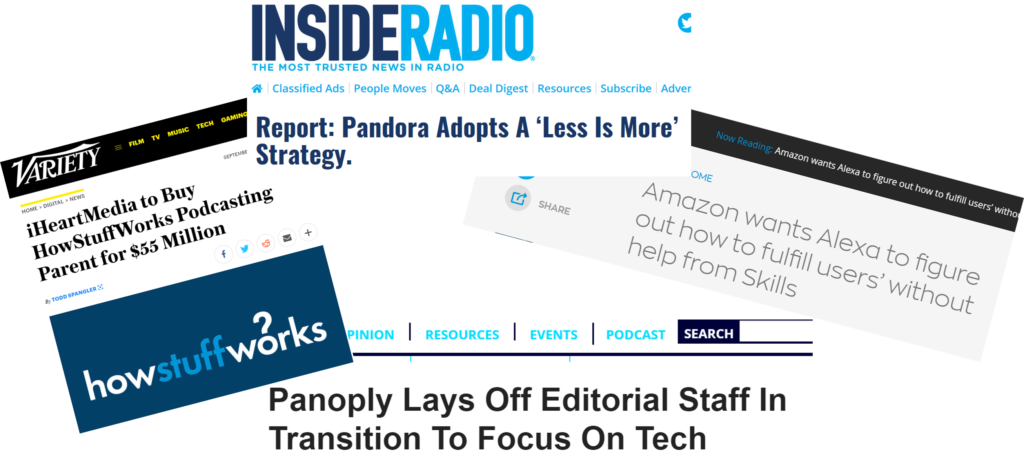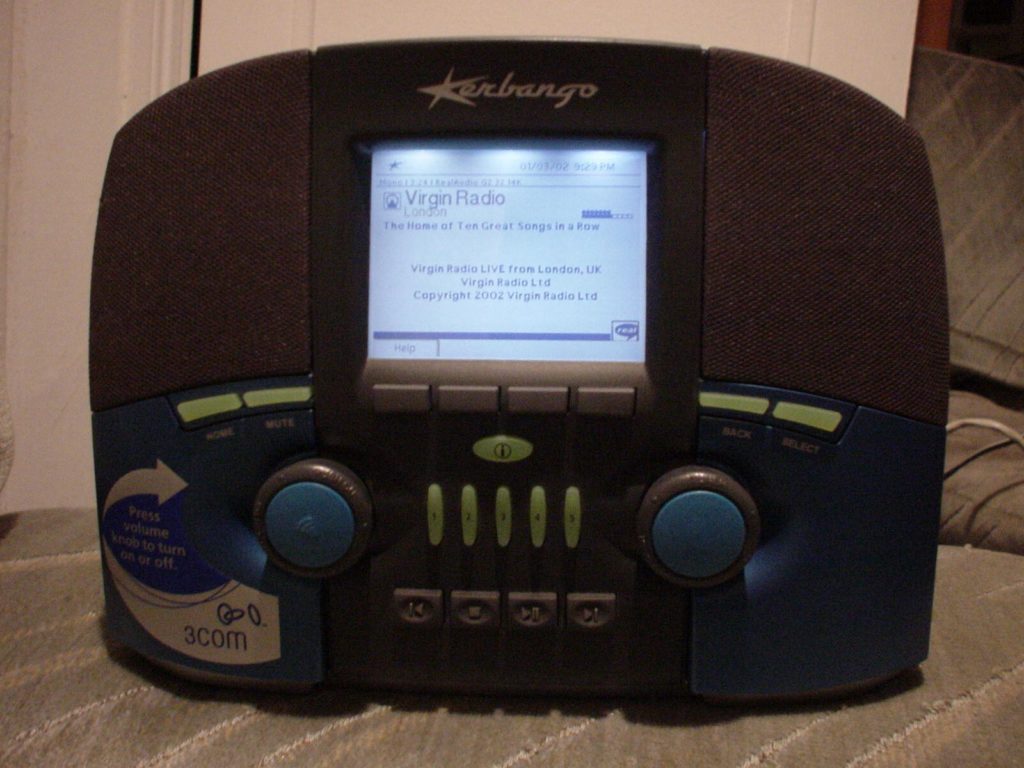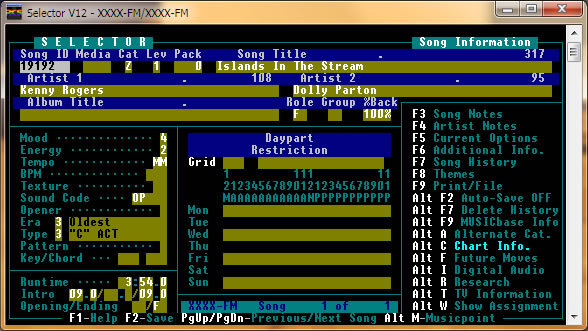
Jacobs Media has been working in the public radio system for two decades now. And it’s been a valuable, rewarding relationship. Surprisingly, it started out with a call from CPB – the Corporation for Public Broadcasting. In the late ’90s, they raised grant dollars to fund a bold project – to determine how the growing tech surge would impact broadcast radio.
And they wanted an “inside/outside” viewpoint from a company outside the public radio system with an understanding of the rapidly growing digital space. Called “The Territories Project,” the core of the assignment was to study the confluence of media and technology to help determine how radio entitites – especially public radio – might be affected by the seismic changes wrought by technology. Little did we know back then that smartphones, social media, podcasts, Netflix, AI, VR, 3G (and beyond), and voice were yet to come.
So, we dove headlong into the project , excited to explore what was coming next and provide perspective to CPB – and all of public radio. And we approached it like a Masters thesis – we talked to leaders in the space, read everything we could, did our homework, and tried to get an understanding of how the radio broadcasting business might change because of the technology wave.
And as we moved deeper into the project, we soon learned we had entered a rabbit hole – and couldn’t get out. It seemed like every time our project -which had now mushroomed to PhD dissertation size and complexity – might near conclusion, a new tech development exploded on the scene, rendering our report incomplete. Internet radio boxes, the emergence of satellite radio, and other new launches stymied the completion of our assignment.
One of the most difficult aspects of the project was attempting to assess whether the barrage of tech developments would yield lasting change – or  would become the next flash in the pan. The Kerbango Box (an early attempt at a true Internet radio) and the Palm Pilot (remember PDAs?) were two such devices that held great promise, but ultimately got left by the tech wayside.
would become the next flash in the pan. The Kerbango Box (an early attempt at a true Internet radio) and the Palm Pilot (remember PDAs?) were two such devices that held great promise, but ultimately got left by the tech wayside.
Finally, we wrapped up the project, with the frustrating realization our white paper would be woefully dated soon after we delivered it to CPB. And one of the lessons learned was that we were ensconced in an era of acceleration and change, making the best laid plans somewhat obsolete.
“The Territories Project” still lives on somewhere in the “interwebs” (no, I’m not going to link it), and remains an interesting read – both for the things we got right and the many (sometimes laughable) predictions we got wrong.
It gave us a tremendous respect for the high degree of difficulty required in predicting an uncertain media future. And in many ways, it helped spur us to start our Techsurveys in the early 2000s, in a quest for knowledge, clarity, and a way the radio broadcasting industry could get a better look around the corner.
So, last week, it was like déjà vu all over again. We are now working with a company in the media/tech space, hoping to nail down a firmer, more cogent direction for them over the next couple years – and beyond. And we were tasked to lead the often arduous process of assessing the present, and looking into the future.
While putting together our conclusions, rationale, and best advice, a sudden barrage of “breaking news” began to cascade from our laptops and smartphones – each one causing us to halt our process, consider what was happening, and quickly assess how it might impact our real-time decisions.
You can see the headlines in the graphic at the top of today’s post:
- Pandora lowering its spot load – So what implications does this have for broadcasters hoping to succeed with their streaming efforts?
- iHeartMedia purchasing a podcasting content company – Clearly, another sign that broadcasters are getting serious about podcasting, looking for effective ways to become viable players in the space.
- Panoply exiting the podcast content space – This was almost the counter story to the previous one, forcing broadcasters to question the degree of difficulty in creating popular, widely heard podcasts.
- Amazon eliminating “skills?” – Everyone acknowledges they have no control over the Alexa platform and that the “skills” process is clunky. But this potential bombshell suggests radio pump the brakes on its voice initiatives and catch its collective breath.
And all these stories came after Apple’s announcement of three new iPhones and the next iteration of their Watch. Who would have thought that in a week where Apple debuts its next genereation of cool devices and platforms, these other headlines would force them off our “front page?”
It’s a powerful suggestion we ought to modify the old phrase a bit:
“We plan. Technology laughs.”
But it also means broadcasters need to be resolute, strategic, and yet flexible at the same time. Smaller, but perhaps no less important companies, developers, and platforms will no doubt come along in the not-so-distant future (like today?), causing us to stop, consider, re-evaluate, adapt.
Strategic vision and planning isn’t just a sometimes job, a part-time activity, something to do when we get a few minutes, or a once a year off-site. The lessons we learned while researching and writing “The Territories Project” continue to resonate today.
 When I worked for radio stations back in the ’70s and ’80s, the biggest disruptive changes were the advent of CDs, the debut of MTV, and RCS’ development of Selector and teh dawn of music scheduling. In the harsh light of today’s tech tsunami, we were living in the Ice Age.
When I worked for radio stations back in the ’70s and ’80s, the biggest disruptive changes were the advent of CDs, the debut of MTV, and RCS’ development of Selector and teh dawn of music scheduling. In the harsh light of today’s tech tsunami, we were living in the Ice Age.
Today, change isn’t just something we need to consider. It is part of everyyone’s job description.
Last week, we talked about the fear of falling behind – or FOFB . Today, it’s C2FC – the courage to face change.
Those with the vision and the willingness to take change head-on and make it work for their organizations will be the MVPs.
Perhaps it’s simpler than all that. As the renowned philosopher, Roseanne Roseannadanna used to say,
“It’s always something.”
You go, girl.
- What To Do If Your Radio Station Goes Through A Midlife Crisis - April 25, 2025
- A 2020 Lesson?It Could All Be Gone In A Flash - April 24, 2025
- How AI Can Give Radio Personalities More…PERSONALITY - April 23, 2025




Great article!
Appreciate the comment, Steven.
No matter what, it’s a fantastic time for audio. The people who will come out winners are the ones who not only embrace new technologies but educate themselves on them and why consumers chose them.
Excellent article from Fred and an excellent, thoughtful observation from you, Matthew. It’s a great time to be in the world of audio–and will only get greater!
Dave, many thanks for the comment and for reading our blog.
Spot on, Matty. Those who see these breakthroughs as opportujities rather than challenges (or burdens) stand the best chance of a positive outcome.